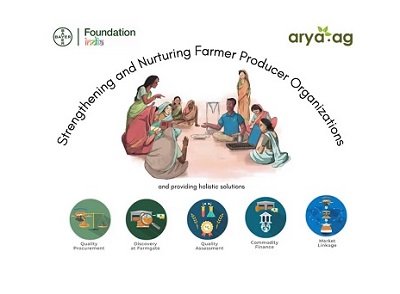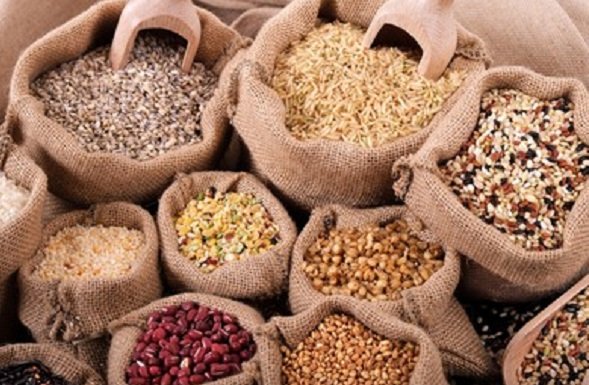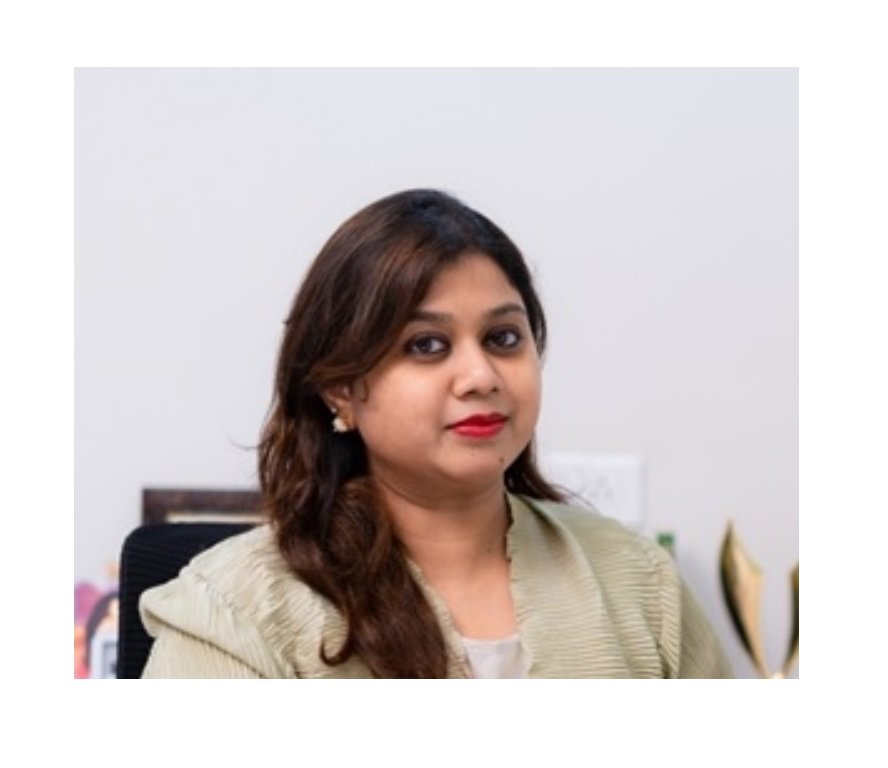Devleena Bhattacharjee, Founder, Numer8 Analytics interacted with AgroSpectrum about the contribution of women in agribusiness and her work in the fisheries sector. Edited excerpts;
Devleena Bhattacharjee, founder, Numer8 Analytics is the winner of ‘Best Women Agtech Entrepreneur Award 2021’ at the 4th Edition of Summit & Awards for Innovations by Agri Startups organised by Federation of Indian Chambers of Commerce and Industry (FICCI). She is also the Chairperson of FICCI Fishtech subcommittee and is working with the FICCI team in bringing a holistic change to the fisheries sector.
Devleena is a data scientist with over 15 years of experience in using data to solve real-world business problems across different domains. Her first data science startup ‘Woocation’ was a risk intelligence platform for the insurance industry. Her second data science startup Numer8 is currently using satellite data along with other sensor data to build profitable, traceable, and sustainable fisheries. Numer8’s product Ofish was selected by the European Space Agency and the UN World Food Programme for helping address SDG 2, 12, and 14. She started Numer8 as a solo founder in 2017 and now works with a team of data scientists, data architects, and GIS analysts. Devleena interacted with AgroSpectrum about the contribution of women in agribusiness and her work in the fisheries sector. Edited excerpts;
How can we increase participation of women entrepreneurs in India?
The problem is that as of today though 77 per cent of women aged more than 15 years have a bank account, 53 per cent of that population has not made a single deposit. On the digital ecosystem side, the numbers are even bleaker, only 22 per cent of women have used digital payment in India. This also stems from the fact that across 22 states in India, only 54.8 per cent of women own a personal phone.
So we are looking at grass root level changes when you speak pan India. The situation is a little better when you look at urban folks, however, growing adoption at scale is still lost in societal, technological, and gender issues.
So, on a broad level, considering both urban and rural women entrepreneurs, we need to have a couple of primary kinds of inputs as follows:
1. Building financial literacy and increasing access to financial products and services. The product and solutions should be built in a way it is easily accessible across regions, across the economical section, across various languages, ages and demography.
2. Support for increased adoption and incentivisation so that the entire family can participate and be benefitted from having a women entrepreneur at home.
3. Targeted approach to focus areas that need different interventions like women tech start-up entrepreneurs or women farmers. These will be industry-specific solutions and programs which address micro issues.
Although women are actively heading in different sectors of the agri industry, it is primarily dominated by men in India. How, then, can women’s contribution in agribusiness be increased?
Rural, Semi-urban, and Urban India are very different geographies to deal with when it comes to fighting gender and societal biases. The problem mutates even further given the economic section the business owners belong to. But on a broad level, I think the problem with women entrepreneurs in agri is not very different from women entrepreneurs in any other business.
If even I, coming from a somewhat privileged background with some degree of education, could be asked by a bank to submit a male family member’s PAN or Aadhar to authenticate my request for a business loan, imagine what a less privileged woman faces. Financial inclusion, financial and digital literacy education, awareness, and self-help groups go a long way to build sustainable women business owners
Just speaking of agri urban and rural, I think the following can be done to boost the sector ground up:
1. All agribusinesses need to report the number of women blue-collared workers they employ and a mandate to have at least a percentage of a board being women to represent women’s set of issues.
2. Self Help Groups (SHGs) have a brilliant model for improving women’s participation. Financial discipline is generally a women’s thing so SHGs saving first- credit later model can be extended further with goals given to rural women to open their self-owned businesses along with financial and digital literacy
3. Have a Social P2P lending model like RangDe where an urban women investor in agri can support a rural women entrepreneur
4. For all urban women entrepreneurs in agribusiness, a grant to involve rural women in their value chain and even a team should be provided
5. Formal financial products across all banks that provide easy business loans to women with less interest should be provided – this is still something that is not done, even though on papers it says different.
6. Apart from this, a gender-neutral work environment especially for rural women entrepreneurs, proper child support packages and an active grievances cell to attend to any personal and work related complaints should be set up in every village.
How is Numer8 Analytics helping fish farmers leverage data science to make fishing profitable?
We are helping fisher folks to reduce their cost of operations by up to 40 per cent and increasing their sales margin by up to 10 per cent. We do this by a combination of fishing advisory, forward and backward market linkages, and finance connect.
The advisories are provided by analysing satellite data on an hourly basis. Market linkages are offered with traceability to enable supply chain monitoring in place. And our finance connect model is where we are connecting the fishing community with recommended low interest loan providers suited to their credit profile.
What challenges did your company face initially?
We are pioneering the application of data science in fisheries. We are the first movers in this which gives us a virgin market to tap into but also a lot of challenges and learnings.
The main challenges we faced initially:
1) Tough Demography: Reaching out to a group of fisher folks in an area as a captive audience. This community is highly unavailable and does not have the habit of showing up for a scheduled meeting. So, in the initial days, when nobody knew us, it was very few audiences for us to play with
2) Linguistic Challenges: Overcoming the regional vocabulary challenge. Every state in India is a country by itself. So even though our app supports all regional languages, as a team we had to have folks from across the country to be able to communicate to our users effectively. This was difficult to hire and recruit time wise and cost-wise
3) Remote Customers: All our customer outreach was extensive in nature in the initial days when we did not have a local presence. In two of the instances, it required me to drive up and down the west coast from Mumbai to Cochin since no local transport enabled us to travel back and forth coastal fishing communities
4) Industry Biases: We are still struggling with various industry biases against the fishing industry. In addition to that, the application of data science and especially space data analysis to fisheries is a niche area for many to follow and understand, so we are seen with a mixed lens of admiration and doubt.
Could you take us through your growth strategies and plans for FY 22-23?
The plan for Numer8 this year is to expand to all states in India for all our business lines that are advisories and market linkages. And especially focus on supply chain efficiency in the export sector for fisheries
What acclamations have Numer8 Analytics received at the international and national level to date?
We have received various awards for our work in the fisheries sector, including: o Sep 2018, ESA Copernicus Masters
o Feb 2019, United Nations World Food Programme
o Dec 2019, ESRI, 1st prize, Geo Innovation
o July 2020, WIT Tech for Good
o Nov 2020, Tech Emerge, ADPC – World Bank
o Feb 2021, ISRO Niti Aayog, ANIC-ARISE
o Dec 2021, Meity Scale Up
o Jan 2022, FICCI Best Women Agtech Entrepreneur Award 2021
What do you foresee for women entrepreneurs in the Agri industry?
The agriculture sector has a lot of participation of women. It employs around 80 per cent of all economically active women in India. This is spread across 33 per cent of the labour force and 48 per cent of the self-employed women farmers. 85 per cent of our rural women are engaged in agriculture, yet, only about 13 per cent own land. In the fisheries supply chain, 72 per cent consists of women.
So, clearly, the future of women entrepreneurs in the Agri Industry need better acknowledgment and support. They should be given an opportunity to own businesses instead of just being brute labour.
Forbes had published an article in 2020 which read – The Invisible Women of Small Scale Fisheries Contribute 11 per cent of Global Catch. And this is not very much different in other parts of the agri industry. This needs to change.
Dipti Barve
dipti.barve@mmactiv.com
Devleena Bhattacharjee, Founder, Numer8 Analytics interacted with














